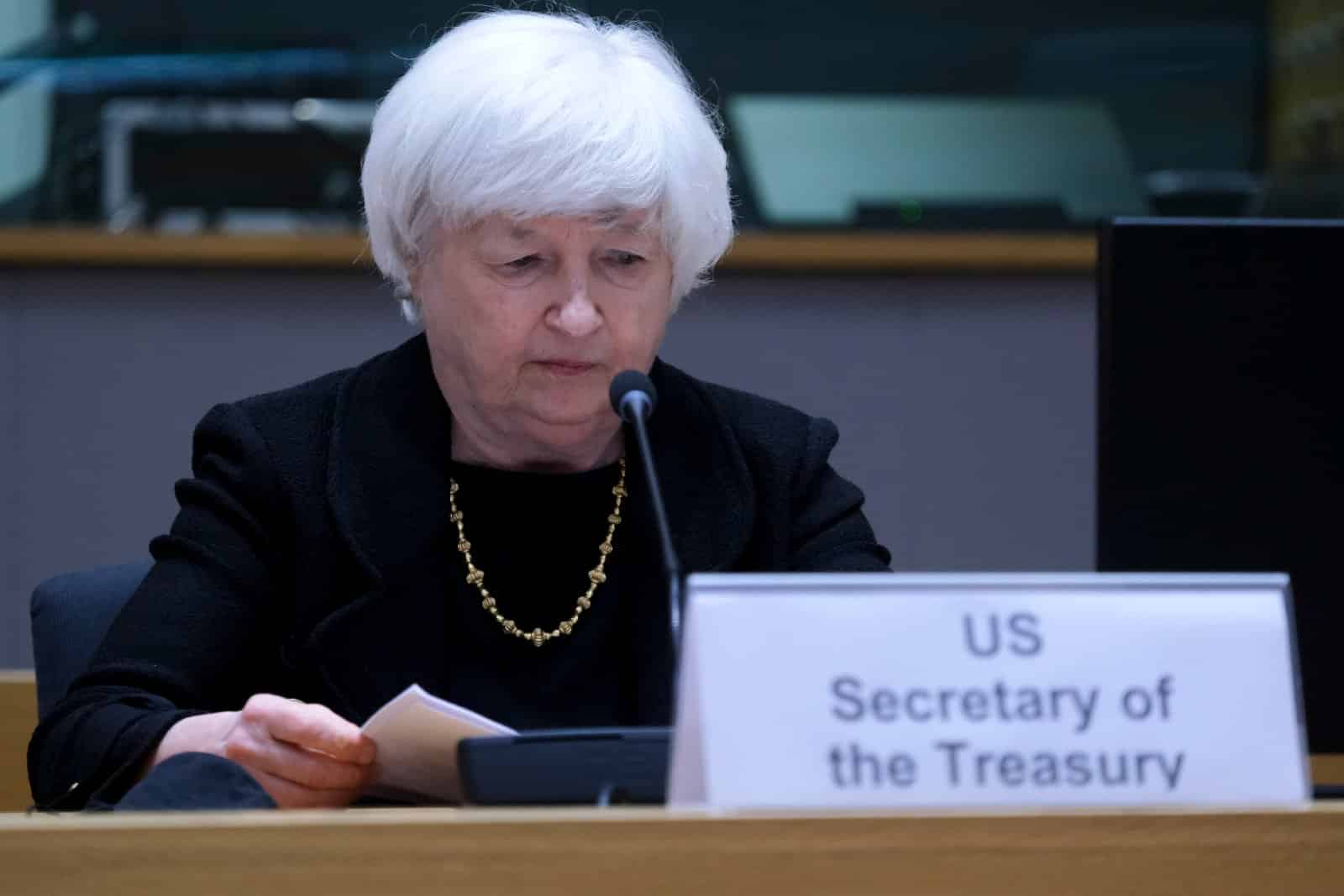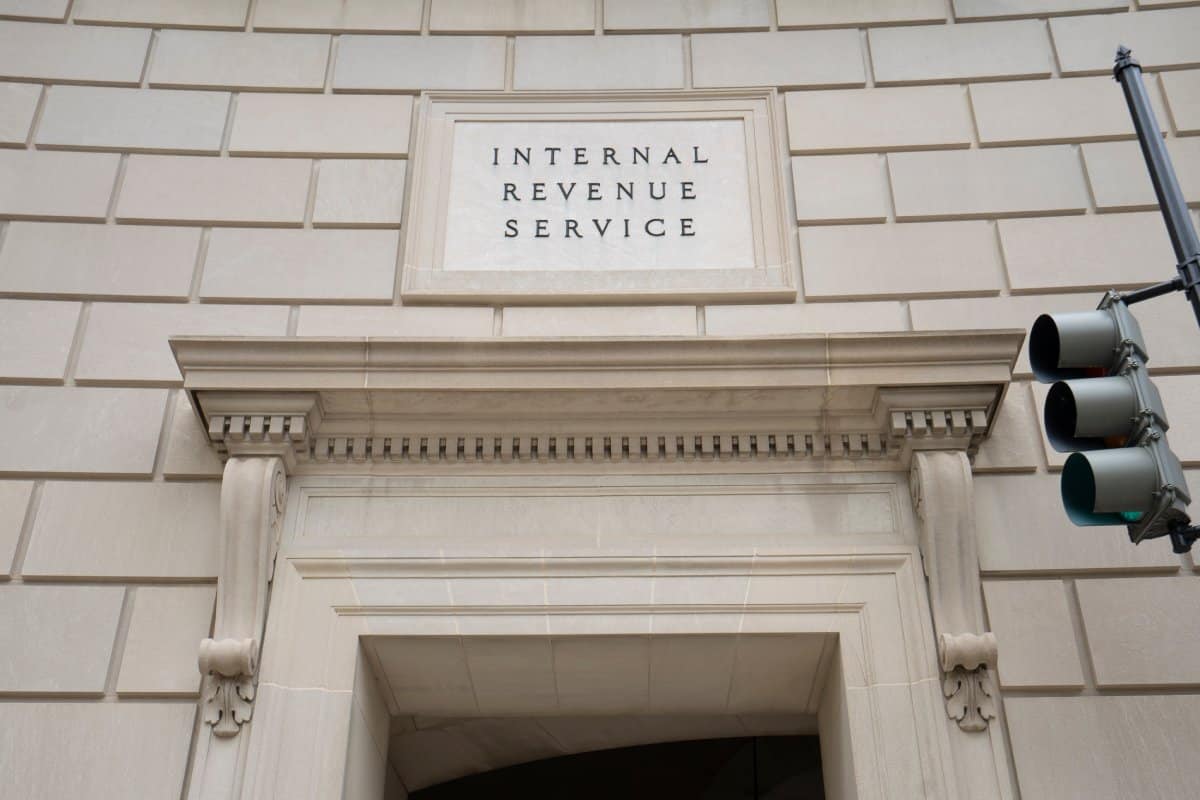The IRS announced it’s targeting high-income earners who have failed to file tax returns. Americans seem to be both excited by the prospect of a fair tax system and nervous that the crack-down will hurt their future filings. The new initiative is a mixed bag for taxpayers.
IRS Closes Major Loophole

The IRS has announced a new initiative that targets high-income taxpayers and businesses who have failed to properly file their tax returns. This move aims to address almost 300,000 cases.
Focus on Millionaires

Many of these cases involve wealthy individuals, often millionaires, and companies with financial activities worth billions. The IRS believes that by cracking down on these loopholes in the system, tax compliance will improve.
How Does the Current System Work?

Right now, companies can move their assets around different parties to get deductions. This system benefits the wealthy and hurts those who cannot take advantage of it.
Tax Fairness

This initiative is just one part of a broader effort to ensure fairness in the tax system. By focusing its efforts on high-income earners, the IRS hopes to make the system fair for all taxpayers.
Support of Yellen

The Treasury Department has supported the IRS in this initiative. Secretary Janet Yellen has emphasized the need for better IRS funding to be able to track high-income people who are not paying their fair share.
Addressing the Tax Gap

The tax gap, which is the difference between taxes owed and taxes paid, is a major concern for the IRS. This initiative aims to reduce the gap by targeting those who owe the most, and also raising money to further investigate.
Taxpayers React

Naturally, taxpayers have had mixed reactions to the initiative. While some believe that it’s only fair to ensure that everyone, especially the wealthy, pay their fair share, others are fearful of increased scrutiny. For now, the wealthy are affected, but many are concerned that the crackdown will eventually trickle down to the lower classes.
What are Businesses Saying?

The business community in particular have expressed concern over the new changes. Some are worried that the new rules will increase their tax burden and complicate their filings.
Up For Political Debate

Taxes, as is the case most of the time, are a hot political topic. Some politicians believe this move is important for promoting fairness amongst Americans, while others think that the IRS is overstepping.
Potential Revenue Gains

One of the greatest potential outcomes of this crackdown is the substantial revenue gain. The plan may raise up to $50 billion in the next ten years.
Use of Recovered Revenue

The revenue that could come from this initiative would be used to fund essential public services. This may include infrastructure, healthcare, and educational programs.
Long-Term Economic Benefits

The long-term benefits of these initiatives could mean a more effective tax system and improved public finances. If all taxpayers, especially those deeply impacting our country’s revenue, are held responsible, we may have more economic stability.
Increased IRS Resources

This new initiative is possible because of recent IRS funding. The 2022 Inflation Reduction Act has given the IRS the resources to further investigate cases where taxes are not filed.
Public Perception

How the public perceives these decisions is likely to be influenced by the outcome of the plan. If the IRS can successfully recover unpaid taxes of wealthy taxpayers, the public may be more inclined to view the agency as a useful government organization.
Challenges Ahead

The IRS faces several challenges, including identifying non-filers and dealing with potential legal battles that may arise. The key will be to focus on compliance without creating unnecessary strain on the system.
The Role of Modernization

As the IRS receives more funding, modernizing its technology will be essential to the success of this initiative. Newer and more efficient systems can track and process financial information in a more effective way.
Encouraging Voluntary Compliance

By cracking down on high-income non-filers, the IRS hopes to encourage voluntary compliance among other taxpayers. Knowing that the IRS is serious might discourage others from avoiding their taxes.
Future Enforcement Plans

If this project is successful, the IRS could expand its efforts to other areas of non-compliance. The success of this initiative could decide how broader tax enforcement strategies are used.
Legal Implications

For those who may be the most affected by these new initiatives, there could be significant legal implications. High-income non-filers may face hefty fines and legal action.
Enhancing Public Trust

By targeting tax evasion by high-income earners and closing loopholes, the government hopes to enhance public trust in the tax system. It’s important for regular citizens to see wealthy Americans and large companies be held accountable.
Big Step Forward

If successful, this plan could rebuild trust in the government, raise revenue, and create a more effective tax system. However, many are still hesitant and a lack of success could further hurt public confidence in our tax system.
Remote No More: 19 Companies Returning to the Office

As the pandemic wanes, companies are recalling remote workers back to the office, sparking debates on fairness, costs, and convenience. However, there are also notable productivity, coworking, and mental health benefits to consider. Feeling the effects of these changes? Remote No More: 19 Companies Returning to the Office
8 Costco Must Buys and 8 to Leave Behind

Ever wandered Costco’s aisles, questioning if that giant jar of pickles is a real bargain? Or debated buying tires where you get your rotisserie chicken? Welcome to the definitive guide to Costco shopping—a journey to save money, prevent regrets, and offer quirky insights into bulk buying. 8 Costco Must Buys and 8 to Leave Behind
23 Reasons Texas Is the Next Big Thing

Texas is becoming a beacon of opportunity, blending cultural heritage with economic growth. From its landscapes to its industries, the Lone Star State offers a dynamic lifestyle. Here are 23 reasons why Texas stands out, attracting entrepreneurs, artists, tech professionals, and families seeking new beginnings. 23 Reasons Texas Is the Next Big Thing
The post Wealthy Americans Hit by New IRS Fair Pay Tax Rule first appeared on Liberty & Wealth.
Featured Image Credit: Shutterstock / Tada Images.
The content of this article is for informational purposes only and does not constitute or replace professional financial advice.

